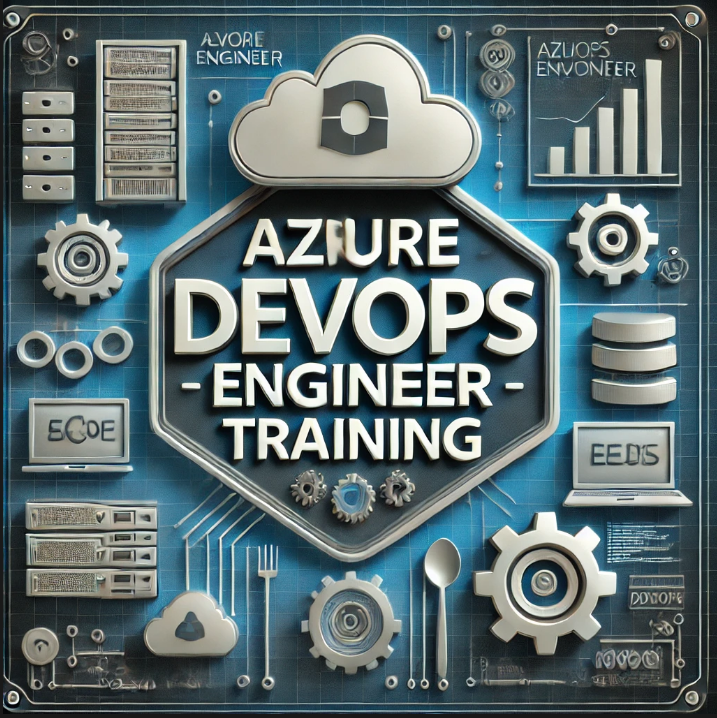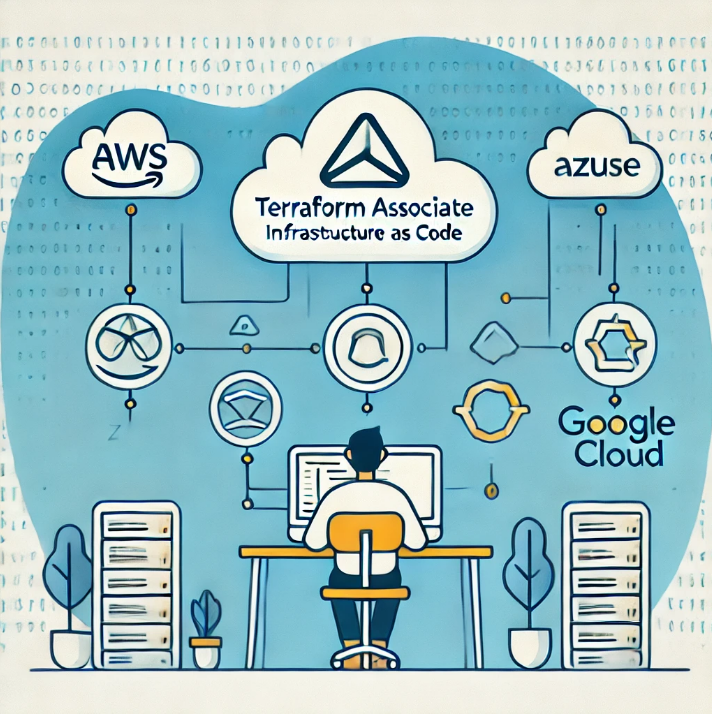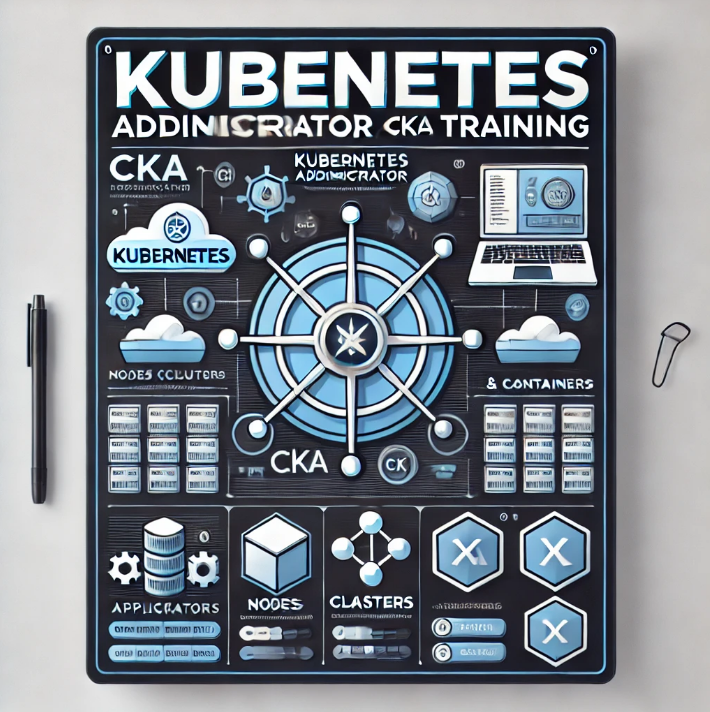Azure DevOps Engineer Training

Azure DevOps Engineer Training: A Complete Guide.
The shift towards cloud-based solutions and automation has increased the demand for professionals skilled in DevOps practices. Microsoft Azure, one of the leading cloud service providers, offers a comprehensive platform for DevOps, allowing organizations to streamline their development and operations processes. The Azure DevOps Engineer Training is designed to equip IT professionals with the necessary skills to design, implement, and manage DevOps practices using Microsoft Azure.
In this guide, we’ll explore what the Azure DevOps Engineer Training covers, who should attend, and why this certification can enhance your career.
What is Azure DevOps Engineer Training?
Azure DevOps Engineer Training is a structured learning path that prepares individuals to manage DevOps practices using the Microsoft Azure platform. The training covers topics like continuous integration (CI), continuous delivery (CD), infrastructure as code (IaC), and monitoring. By completing this training, participants will gain hands-on experience in automating and optimising DevOps pipelines using Azure tools like Azure Pipelines, Azure Boards, Azure Repos, and Azure Artefacts.
The course also prepares you for the Microsoft Certified: Azure DevOps Engineer Expert exam, which is an essential certification for those looking to validate their expertise in DevOps practices on Azure.
Key Features of Azure DevOps Engineer Training
The training is organised into several modules, each designed to give participants a thorough understanding of specific DevOps practices on Azure.
1. Introduction to DevOps on Azure
In this module, participants are introduced to the core concepts of DevOps and how Azure supports DevOps practices. You will learn:
- What DevOps is and why it matters
- The benefits of DevOps in cloud computing
- An overview of Azure DevOps tools and services
This introductory module sets the foundation for the rest of the training.
2. Planning and Tracking with Azure Boards
Azure Boards is a powerful tool for managing work items, backlogs, and sprints in a DevOps environment. In this module, you’ll learn how to:
- Plan and track work using Azure Boards
- Organize tasks and projects
- Collaborate effectively across teams
Understanding how to track progress is crucial for successful project management in a DevOps pipeline.
3. Source Code Management with Azure Repos
Managing source code effectively is at the heart of DevOps practices. In this module, participants will learn:
- How to use Azure Repos for version control
- Collaborating with team members using Git repositories
- Best practices for managing source code changes
Source code management is key to ensuring collaboration and maintaining the integrity of your software projects.
4. Continuous Integration with Azure Pipelines
Continuous integration (CI) is an essential part of DevOps, where developers frequently integrate code changes into a shared repository. This module focuses on:
- Setting up and configuring Azure Pipelines for continuous integration
- Automating builds and testing processes
- Ensuring code quality before deployment
CI helps teams detect issues early, improving the overall quality of software.
5. Continuous Delivery with Azure Pipelines
Building on CI,continuous delivery (CD) ensures that code is automatically deployed to production once it passes all tests. In this module, you’ll learn:
- Automating deployments with Azure Pipelines
- Setting up release pipelines for faster and reliable deliveries
- Reducing manual intervention in the deployment process
CD enables organisations to deliver updates faster, improving responsiveness to market demands.
6. Dependency Management with Azure Artifacts
Azure Artefacts is a tool that helps manage dependencies in your projects. In this module, you’ll explore:
- How to create and manage packages using Azure Artefacts
- Best practices for versioning and dependency management
- Integrating Azure Artefacts with other Azure DevOps services
Effective dependency management ensures that your software has all necessary components for smooth operation.
7. Infrastructure as Code with Azure
Infrastructure as code (IaC) is a critical DevOps practice that involves automating the provisioning and management of infrastructure. This module will teach you:
- Using Azure Resource Manager (ARM) templates and Terraform for IaC
- Automating infrastructure deployment and scaling
- Best practices for maintaining infrastructure consistency across environments
IaC reduces the risk of human error and ensures consistent environments across development, testing, and production.
8. Configuration Management with Azure
Configuration management ensures that all systems are configured consistently. In this module, you’ll learn how to:
- Manage configuration settings using Azure services
- Use automation to enforce configurations across environments
- Ensure consistency between development and production systems
Consistent configurations help avoid environment-specific bugs and ensure smooth deployments.
9. Monitoring and Logging with Azure
Monitoring is vital for detecting and resolving issues in real-time. In this module, you’ll learn how to:
- Set up monitoring and logging for applications and infrastructure in Azure
- Use Azure Monitor and Log Analytics to track performance and diagnose issues
- Implement automated alerts to proactively resolve problems
Monitoring and logging help ensure that your applications remain reliable and performant.
10. Security and Compliance in DevOps
Security is a top priority in any DevOps pipeline. This module covers:
- Implementing security best practices in DevOps workflows
- Securing the DevOps pipeline using Azure Security Center
- Ensuring compliance with industry standards like GDPR and HIPAA
Ensuring security and compliance helps protect your organisation from data breaches and legal issues.
Prerequisites for Azure DevOps Engineer Training
Before starting the Azure DevOps Engineer Training, participants should have:
1. A basic understanding of cloud computing concepts.
2. Familiarity with Azure services (preferred but not mandatory).
3. Experience with version control systems and basic scripting knowledge.
These prerequisites will help you fully understand the advanced topics covered in the course.
Who Should Attend?
The Azure DevOps Engineer Training is ideal for:
1. DevOps engineers looking to enhance their skills.
2. Cloud engineers responsible for managing Azure environments.
3. System administrators seeking to automate and manage infrastructure.
4. Software developers involved in managing the DevOps lifecycle.
5. IT professionals aiming to implement DevOps practices in their organisation.
6. Anyone preparing for the Microsoft Certified: Azure DevOps Engineer Expert exam.
What You Will Learn ?
By completing the Azure DevOps Engineer Training, you will:
1. Understand the core principles of DevOps and how to apply them on Azure.
2. Manage source code and collaborate using Azure Repos.
3. Implement continuous integration and continuous delivery pipelines with Azure Pipelines.
4. Use Azure Artefacts for managing dependencies.
5. Automate infrastructure deployment using Infrastructure as Code.
6. Set up monitoring and logging to keep your applications running smoothly.
7. Ensure security and compliance throughout your DevOps processes.
Exam Overview
Participants who complete the training can sit for the Microsoft Certified: Azure DevOps Engineer Expert exam. Here are the details:
- Exam Code: AZ-400
- Format: Multiple choice, case studies, drag-and-drop
- Duration: 150 minutes
- Passing Score: 700 out of 1000
Why Take Azure DevOps Engineer Training?
As cloud computing continues to grow, the demand for professionals who can manage DevOps practices in Azure is increasing. This training provides you with:
- Hands-on experience in Azure DevOps tools.
- The opportunity to learn from real-world case studies.
- A certification path that can enhance your career prospects.
The Microsoft Certified: Azure DevOps Engineer Expert certification is highly valued by employers and can set you apart in the competitive job market.
The Azure DevOps Engineer Training is a comprehensive course that prepares you to manage and optimize DevOps practices using Microsoft Azure. By mastering key concepts like continuous integration, continuous delivery, infrastructure as code, and monitoring, you will be equipped to handle the complexities of modern DevOps workflows. Whether you're looking to validate your skills with certification or want to improve your organization’s DevOps processes, this training is an excellent investment in your career.
Start your journey today and become an expert in Azure DevOps!




